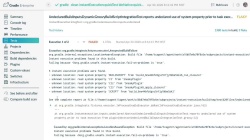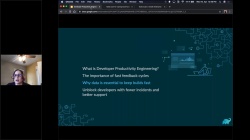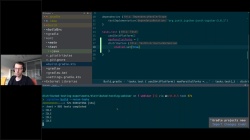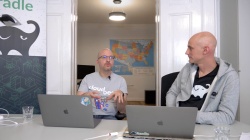Like many companies, the software development experience at Elastic was starting to become negatively impacted under the increasing strain of slowing builds and inefficient process for testing and debugging. And, the pain was only expected to increase in line with the growth of development teams, code bases, and repositories. The cost of inaction was projected to soon become unbearable.
In this webcast, Mark Vieira, Senior Software Engineer at Elastic discusses with Gradle, Inc. CEO, Hans Dockter, how Elastic overcame the natural resistance to change their process and toolset by quantifying the Cost of Inaction and blazing a new path toward build engineering excellence.
Read More →











